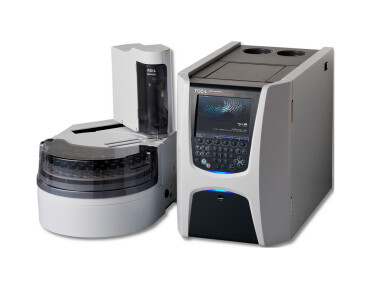Laboratory Products
When is the Best Time to Take Your Medication?
Jan 29 2019
Want to give your body the best possible chance at responding to medication? According to experts, it's all about timing. Known as pharmacogenomics, the branch of genetics focuses on maximising individual responses to therapeutic drugs by optimising factors like dosage and timing.
A recent study was led by Marc D. Ruben, a research fellow at Cincinnati Children’s Hospital, and suggests that while most doctors tell patients to simply pop pills in the morning, evening or with a meal, strategic timing could enhance the body's response.
"The discovery that half of the mammalian protein-coding genome is regulated by the circadian clock has clear implications for medicine," reads the abstract.
Scientists target tissue-specific molecular rhythms
He says that proteins targeted by drugs conform to a daily cycle of activity that's determined by the body's natural circadian rhythms. Armed with this knowledge, Ruben and his team claim that it's possible to heighten the effectiveness of medication by issuing doses when the genetic proteins they target are functioning at the highest possible levels.
Findings were published in the journal Science Translational Medicine under the title 'A Database of Tissue-Specific Rhythmically Expressed Human Genes Has Potential Applications in Circadian Medicine.'
Using the cyclic ordering by periodic structure (CYCLOPS) algorithm, the team analysed the gene expression collection of 13 tissues sourced from more than 600 human donors. After pinpointing gene expression rhythms from across the body, they found that almost half of protein-coding genes actively cycled in at least 1 of the 13 analysed tissues. Roughly 1000 of these cycling genes were responsible for encoding proteins that are either targeted by drugs, or work to transport or metabolise medication. This suggests that the concept of tissue-specific molecular rhythms could play an important role in determining the effectiveness of drugs.
Reducing dosage and maximising impact
According to Ruben, strategic timing that syncs with the body's natural circadian rhythms “could reduce the amount of drug needed to achieve a desired effect or lessen side effects at the same dose.”
For example, medication designed to treat a hyperactive thyroid could be capitalised if taken when certain genes in the neck and throat are most active. Furthermore, taking medication when thyroid genes are inactive could be less effective, or even futile.
For a closer look at the latest laboratory breakthroughs don't miss 'Characterising Unknowns: Behind the Scenes of Chemical Investigation.
Digital Edition
ILM 49.5 July
July 2024
Chromatography Articles - Understanding PFAS: Analysis and Implications Mass Spectrometry & Spectroscopy Articles - MS detection of Alzheimer’s blood-based biomarkers LIMS - Essent...
View all digital editions
Events
ACS National Meeting - Fall 2024
Aug 18 2024 Denver, CO, USA
Aug 25 2024 Copenhagen, Denmark
Aug 28 2024 Phnom Penh, Cambodia
Sep 04 2024 Chiba, Tokyo, Japan
Sep 04 2024 University of Warwick, Coventry, UK


















